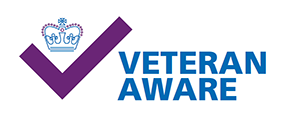Unscheduled Bleeding on Hormone Replacement Therapy (HRT)
Trusts across Cheshire and Merseyside are working towards the implementation of a new pathway for patients with unscheduled bleeding on HRT. This pathway provides extra guidance to support the current NG12 and DG30 guidance, as well as the April 2024 guidance by the British Menopause Society.
This new pathway is underpinned by the national British Menopause Society (BMS) guidance and evidence to support the use of Transvaginal Ultrasound Scans (TVUSS) as a first line investigation for some patients who experience unscheduled bleeding whilst taking HRT. Evidence shows that the risk of endometrial cancer amongst many of these patients is around 1%.
- What is ‘Unscheduled Bleeding’?
Unscheduled vaginal bleeding, i.e. bleeding that occurs outside of the scheduled withdrawal bleed experienced by people using sequential HRT or at any point in people using combined continuous HRT, is common in the first few months of treatment. It is seen in approximately 80% of those within the first 3 months of treatment and falls to approximately 10% by 1 year of treatment.
HRT users with unscheduled bleeding are at an 80% lower risk of having endometrial cancer than non-HRT users that experience postmenopausal bleeding. The risk of endometrial cancer in women using HRT with unscheduled bleeding is 1.2% or 1 in 83. The NICE Suspected Cancer Referral Guideline (NG12) suggests that patients should be referred for investigation urgently if they have a risk of cancer of over 3% or if the cancer that is suspected is associated with a high risk of mortality. Not all patients with bleeding whilst on HRT fit these criteria and only high-risk patients should be referred on urgent suspected cancer pathways.
- Why is this pathway being introduced?
This new pathway aims to provide Primary Care clinicians with an appropriate first line investigation for this cohort of patients. In addition, it is expected that the new pathway will reduce anxiety and provide reassurance to women on HRT with unscheduled bleeding and free up diagnostic capacity for high-risk patients to be seen more quickly in the local cancer unit.
The regional pathway has been designed to remove additional steps for GPs, by introducing a straight-to-secondary-care option for patients whose scan is non-reassuring, removing the need for an additional appointment and referral from primary care.
The pathway is being evaluated in partnership with Cheshire and Merseyside Cancer Alliance.
- What changes are taking place?
Currently, patients with unscheduled bleeding on HRT are referred on the Gynae Urgent Suspected Cancer Pathway. The new pilot pathway supports GPs to stratify these patients into high, intermediate and low risk, determining whether an alternative pathway would be more appropriate. Where a patient meets the criteria, they can be referred for a direct access TVUSS at an MWL Hospital site which will be provided within 6 weeks of referral.
For some patients, it may be more suitable to manage their symptoms in primary care or to refer directly on the Gynae Urgent Suspected Cancer Pathway.
To support the pathway, the ICE order form has been amended to include additional questions regarding patient’s HRT status and other clinical questions.
- When will the changes happen?
MWL will be testing the pathway in a small number of St Helens practices initially in Q1 and Q2 of 2025/26. During this time, all other practices should continue to use the urgent suspected cancer pathway as normal.
Please be aware, the updated ICE order form with the new HRT pathway option will be visible and available for all practices. Please do not use this if you are not involved in the pilot.
- How can MWL support you?
MWL has an effective advice and guidance (A&G) service that we will always encourage you to use. A&G Allows for specialist input to all gynaecology queries and ensures patients receive the most appropriate care at the right time. Response time is usually less than 72 hours and there is the ability to give permission for the Secondary Care clinician to convert to a referral if necessary
You can submit any gynaecological related queries; some examples are listed below:
- Urgent concerns such as potential abnormal bleeding
- Menopause management
- HRT prescribing
- Menstrual disorders
- Confirmation whether a patient should be referred on a routine pathway or as an urgent suspected cancer (USC) referral
- Useful links and information
BMS guidelines which outlines a series of risk factors:
Cheshire and Merseyside Cancer Alliance unscheduled bleeding on HRT Guidance:
Cheshire and Merseyside Cancer Alliance unscheduled bleeding on HRT algorithm/pathway:
Unscheduled bleeding on HRT patient leaflet (will be published once approved)
- To follow






